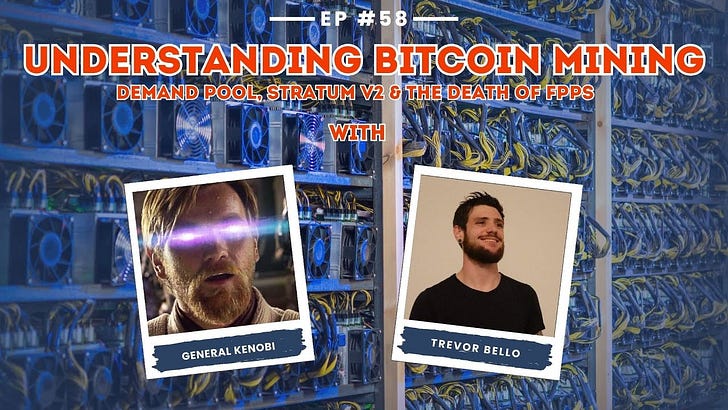Bitcoin Mining and the Path to Decentralization: A Conversation with General Kenobi
In the dynamic world of Bitcoin, mining plays a critical role in maintaining decentralization and ensuring the security of the network. General Kenobi, a seasoned analyst and advocate for decentralized mining, shares his journey and insights into the evolving landscape of Bitcoin mining, including revolutionary developments like Stratum V2 and the crucial role of running your own node.
The Journey into Bitcoin Mining
General Kenobi’s story began with his curiosity about economics and technology. Studying in Barcelona during the onset of the COVID-19 pandemic, he explored the intersection of personal finance, inflation, and saving for the future. This led him to Bitcoin—a tool that aligned with his values of sovereignty and decentralization.
Initially exposed to scams in the broader crypto space, Kenobi used those experiences to deepen his understanding of Bitcoin’s principles. By creating a comprehensive Bitcoin 101 presentation during his early career, he not only educated his peers but also solidified his commitment to the Bitcoin ethos.
The Challenges of Decentralized Mining
Kenobi explains that while Bitcoin itself is highly decentralized, the mining sector faces unique challenges:
Centralization of Power: Mining pools often dictate block templates and reward distribution, leaving individual miners as "hashers" rather than sovereign participants.
Reliance on Stratum V1: The outdated Stratum V1 protocol lacks encryption and efficiency, exposing miners to risks like hash rate theft and invalid blocks.
Economic Pressures: As mining profitability tightens, businesses must innovate with secondary revenue sources like heat reuse and renewable energy integration.
The Promise of Stratum V2
Stratum V2 offers a transformative solution for decentralizing Bitcoin mining:
Enhanced Security: Communications between miners and pools are encrypted, preventing hash rate theft and improving data efficiency.
Miner Sovereignty: Miners can regain control over block templates, deciding which transactions to include in blocks.
Improved Performance: Lower latency and reduced data requirements optimize mining operations.
Kenobi emphasizes the importance of educating miners about these advancements, encouraging them to run their own nodes and embrace sovereignty.
The Future of Bitcoin Mining
Kenobi believes that the future of Bitcoin mining lies in decentralization and innovation. Key trends include:
Decentralized Pools: Projects like Demand Pool aim to empower miners by fully implementing Stratum V2, prioritizing decentralization.
Heat Reuse and Renewable Energy: From aquaculture to district heating, miners are finding creative ways to integrate Bitcoin mining into sustainable energy systems.
Economic Adaptation: Miners must innovate to remain profitable, combining Bitcoin mining with other industrial applications.
Empowering the Next Generation of Bitcoin Miners
Kenobi’s message is clear: Education and decentralization are the keys to a resilient Bitcoin network. By understanding the importance of running a node and participating in decentralized mining practices, individuals can contribute to Bitcoin’s long-term success.
For those new to Bitcoin mining, Kenobi advises starting with accessible tools and communities that foster learning and collaboration. As he puts it, “Bitcoin mining isn’t just about earning—it’s about building a future worth handing down to the next generation.”





